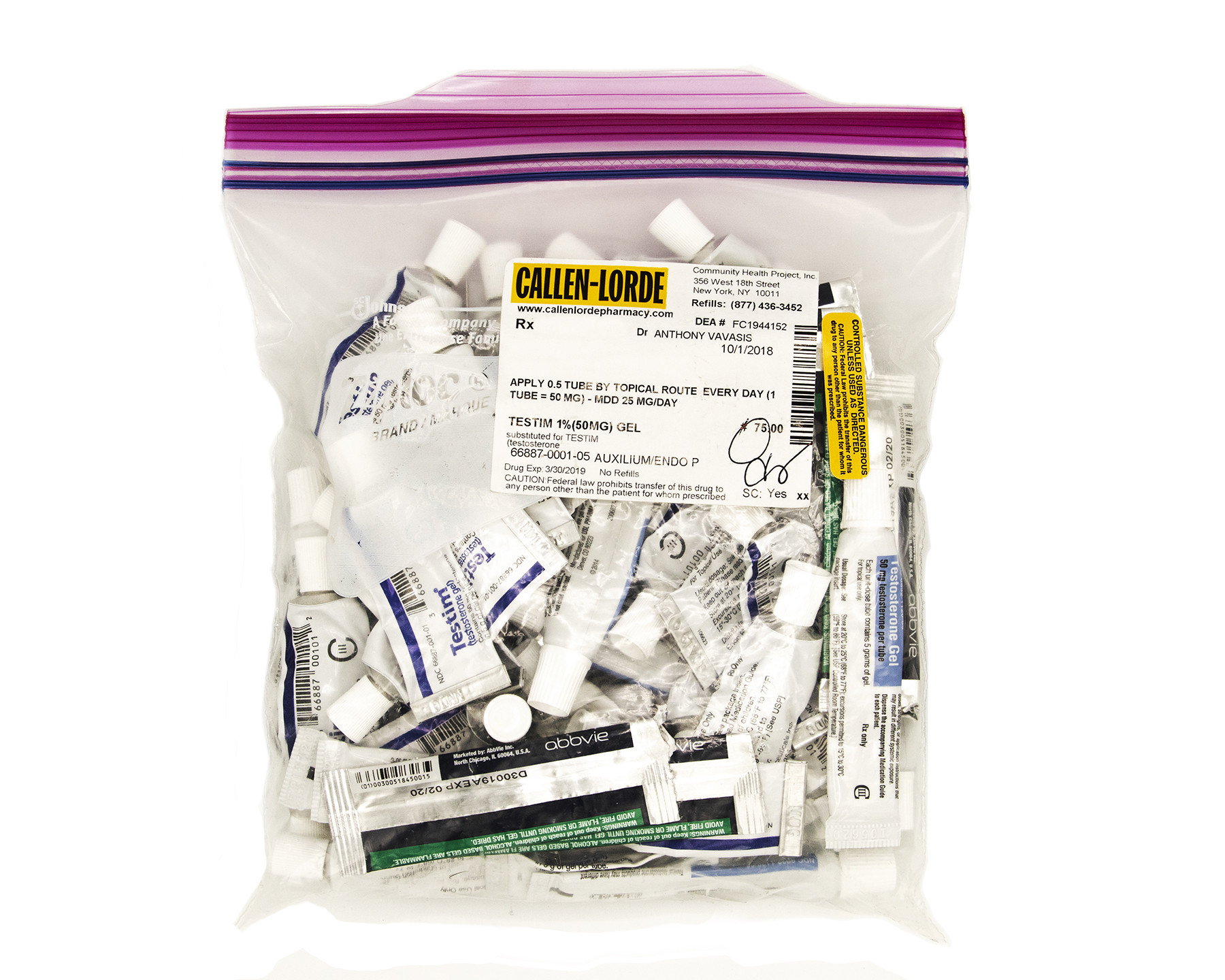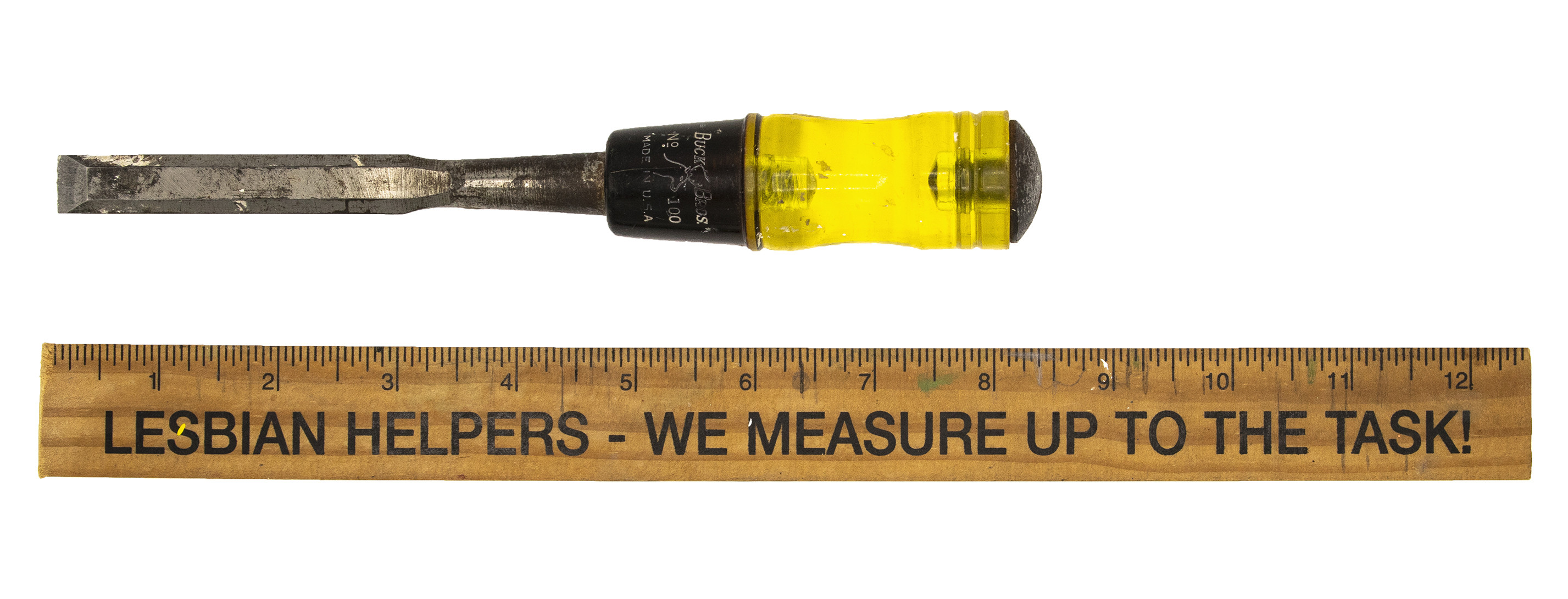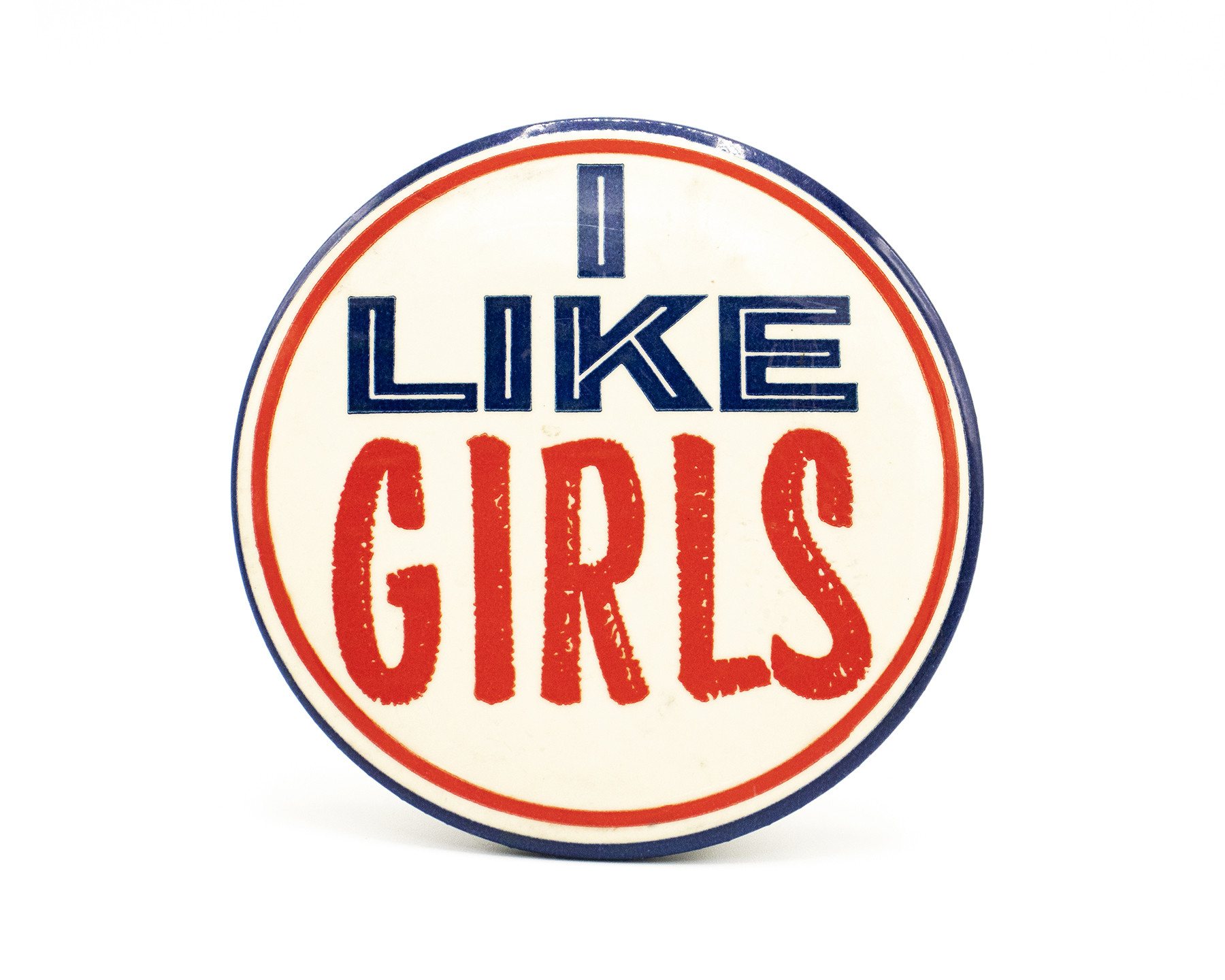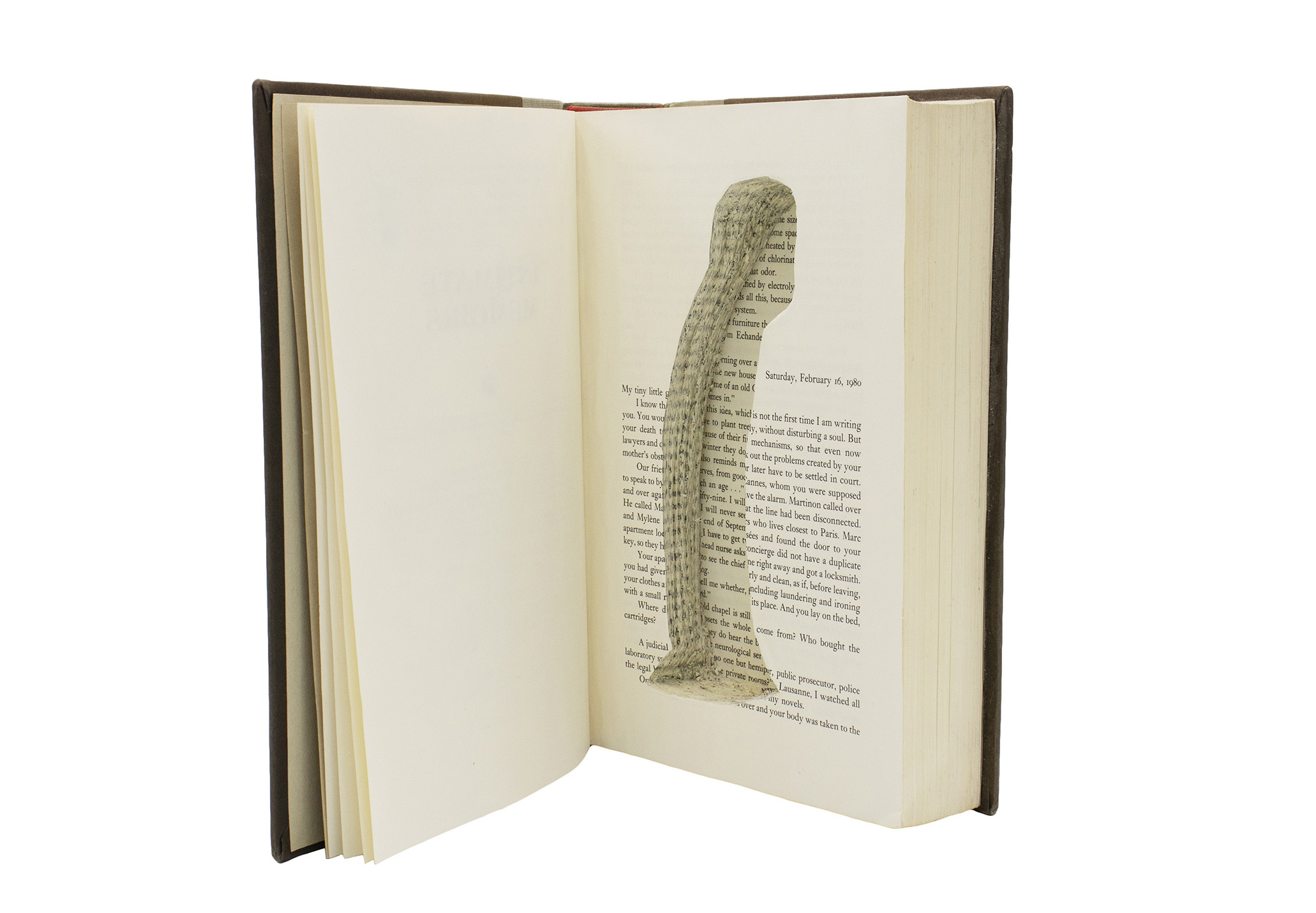
This Artist Collects the Everyday Objects That Define Lesbian Life
February 12, 2019Artist Phoenix Lindsey-Hall is a self-described collector, hanging on to things like photos, ticket stubs, and note scraps as reminders of the memories and relationships that shape her queer identity.
Her reverence for items of sentimental value has led her to spend several years conducting visual arts research and browsing the books, photographs, videos, and other items on display at the Lesbian Herstory Archives, a Brooklyn brownstone that holds the world’s largest collection of materials created by and about lesbians and their communities. Reminded of her own collection, Lindsey-Hall sought out to create a display of personal artifacts, documents, and symbols of lesbian experience, both public and private. “I wanted to put together some of the meaningful things that were important for my queer identity throughout my life, and invite everyone to have this public exhibition that could just really highlight everyone's stories,” said Lindsey-Hall in a phone interview.

Near the end of last year, Lindsey-Hall opened submissions to Lesbian Matters, a participatory art project installed at Trestle Gallery in Brooklyn as part of the BRIC Biennial. The exhibit explores the personal and material items that commemorate lesbian life, define queer identities, and serve as collective reminders of personal queer histories. Lindsey-Hall invited anyone identifying as lesbian, butch, queer, non-binary, and trans to send personal objects like photos, postcards, buttons, trinkets, or clothing items for display. “The objects really are a placeholder that invite a story,” Lindsey-Hall said.
Over 100 participants from across the country sent items representing a wide spectrum of queer and lesbian experiences, along with a description of their significance. Many participants sent hand written notes, leaflets, concert tickets, and a variety of queer punk and anarchist artifacts including a button that reads “dykes versus cops.” Clothing items like worn-out overalls, work boots, and T-shirts from ex-girlfriends were also popular submissions. “Lots of denim jackets that are all ripped up and loved,” said Lindsey-Hall. One participant, an artist and woodworker, donated a pair of paint-splattered Carhartt coveralls. “They knew in order to fit into this boys’ club, they needed to have Carhartts,” Lindsey-Hall said, describing the story this participants included in with their submission. “They went and bought their Carhartts as a kind of symbol, to claim their space in this masculine field.”

Jeanette Spears, a Brooklyn-based video content producer and tuba player with the Lesbian & Gay Big Apple Corps Marching Band, submitted a stainless steel ring she bought at her first Pride festival in Columbus, Ohio when she was still a college student struggling to come to terms with her sexuality. “It was a reminder, even just to myself, that I was brave enough to go,” Spears told me over email. Spears wore the ring on her left thumb for years as a queer fashion symbol, and eventually moved it to her right hand after getting engaged. “It’s a cheap ring that’s worn and not entirely unique, but it’s been something I’ve had on for almost ten years, and plan on having it for a lot longer,” Spears said.
Other items on display hold meaning that may be even less apparent at first glance. Lindsey-Hall remembered opening an envelope containing only a small scrap of faded cotton fabric and a note explaining that the fabric scrap came from the sender’s favorite childhood blanket, which remained on their bed well into their teen years during their first sexual experiences. Some items, like this one, are on temporary display and will eventually return to their owner, while others will become part of the Lesbian Herstory Archives permanent collection.

This display of personal queer artifacts also serves as a public statement against lesbian erasure and stereotyping. “In queer communities, ‘lesbian’ is like a curse word, it's not a word we can even say,” Lindsey-Hall said. She references the soon-to-be rebooted lesbian canonical TV series The L Word, a title that associates “lesbian” with profanity, secrecy, and shame. As lesbian bars and lesbian-specific social spaces gradually become extinct, Lindsey-Hall believes preserving the individual, private stories that define lesbian culture, community, and experience is more important than ever, though she also acknowledges that “lesbian" has, on many occasions, been loaded with trans-exclusive connotations and sometimes used to exclude trans women from queer and lesbian spaces.

However, Lindsey-Hall rejects these transphobic connotations. Lesbian Matters welcomes all participants who feel connected to woman-loving culture to explore and reclaim the word “lesbian” as an intersectional term that includes trans lesbian, bisexual, and gender non-binary individuals and communities. Lindsey-Hall received a number of submissions from trans-identifying individuals, including a Ziploc bag full of used testosterone tubes that the participant explained serve as a reminder of their emotional and physical journey through transition. “I was really floored and felt really honored that someone would trust me as an artist and the project as a whole to borrow something that's so personal,” Lindsey-Hall said.
For some, queer and lesbian identities remain fixed and lifelong, but for others, they can evolve and expand over time, growing into deeper, more complex expressions of gender and sexuality. The personal items on display in Lesbian Matters, and the private stories they represent, honor the variety of these experience with a message of radical acceptance and inclusivity. Lindsey-Hall’s mission to build community and amplify marginalized voices extends to all willing to share and preserve their stories.
Lesbian Matters is on view at Trestle Gallery in Brooklyn until April 3rd.
Sign up for our newsletter to get the best of VICE delivered to your inbox daily.
Follow Sofia Barrett-Ibarria on Twitter.


